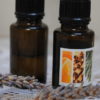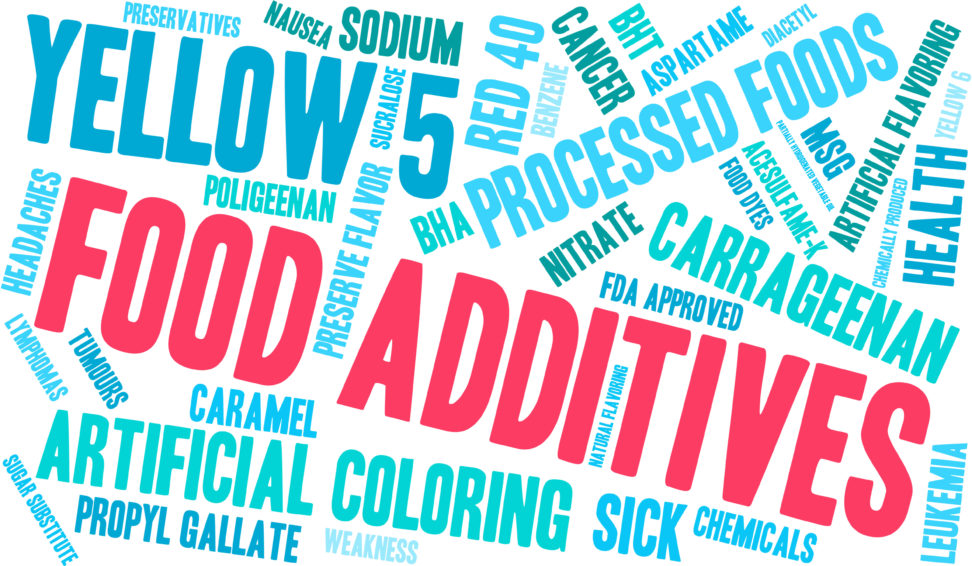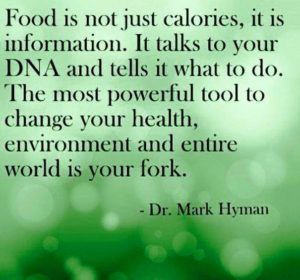 What are endocrine disruptors?
What are endocrine disruptors?
This is a large category of chemicals. One of the most commonly known today is bisphenol A (BPA). The National Institute of Environmental Health Sciences created a helpful introduction:
“Endocrine disruptors are chemicals that may interfere with the body’s endocrine system and produce adverse developmental, reproductive, neurological, and immune effects in both humans and wildlife. A wide range of substances, both natural and man-made, are thought to cause endocrine disruption … Endocrine disruptors may be found in many everyday products–including plastic bottles, metal food cans, detergents, flame retardants, food, toys, cosmetics, and pesticides. … .”
These chemicals have been shown to disturb or mess with our body’s natural hormone balance and can cause health issues over time. This is a big topic. So, if you’d like to read more, review this EPA website and this guide from PrecisionNutrition.
Three tips for avoiding endocrine disruptors:
- Replace plastic containers with glass. Plastics often contain BPA and Di(2-ethylhexyl) phthalate (DEHP). There are many options today for glass containers. Just look at this quick search on The Container Store’s website. Also, Costco has glass containers you can use to replace some of your old plastic ones.
- Pick a glass or metal water bottle. Even if a traditional water-bottle label says it is BPA free, that does not mean that it is free of DEHP or other endocrine-disruptor chemicals. Just skip it.
- Drink filtered water. Local utilities follow governmental guidelines for maintaining drinking water. You can find annual reports on your local drinking water by googling your city and a phrase like “water report.” Even with this diligence, various amounts of chemicals and occasional nasty bugs, like the cryptosporidium parasite that returned to Portland’s water in 2017, are found in local water. An option is to install a tested water filter at home, like the Multipure . I use the AquaTrue water filter system which is a reverse osmosis system and removes everything from the water. I then use a Santevia water pitcher to run the ultra clean water through to put back in minerals. The University of Arizona and The Good Housekeeping Research Institute published an extensive study on filters in Good Housekeeping. The report is from 2012, but it contains very relevant info
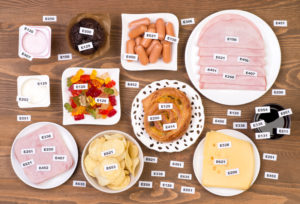 rmation.
rmation.
For a more complete list of disruptors and tips for avoiding them, look at Environmental Working Group’s list of 12 Hormone-Altering Chemicals and How to Avoid Them.
What are pesticides?
Quoting from the article, The Effects of Pesticides in Food, “Pesticides, which are any substance intended to prevent or destroy pests, are used to protect food from bacteria, weeds, mold, insects and rodents.”
There are risks from pesticide residues on food. Pesticide Action Network’s Food: Field to Fork gives a rundown of some of the concerns surrounding pesticide usage. And, contrary to popular belief, you can’t wash pesticides off as they are inside the plant itself.
These concerns are growing and are raising more questions about pesticide exposure, especially for children, older adults, and populations with compromised immune system.
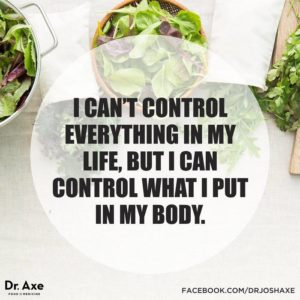 Four tips for avoiding pesticides.
Four tips for avoiding pesticides.
- Avoid processed foods. If you need to buy food on the go, select from a trusted manufacturer that avoids pesticides and other chemicals in their food source.
- Purchase organic fruits and veggies. The more organic foods you eat, the less you expose yourself to pesticides. Join a local organic CSA, or you can shop at Costco, as they are carrying more and more organic options for a very reasonable price.
- Know the “dirty dozen” and clean fifteen” lists. EWG develops these two lists based on USDA testing. The dirty list includes blueberries, grapes, and pears, which have high pesticide residue. The clean list includes avocados, sweet corn, and cauliflower. Check out the complete lists and more in the EWG’s 2018 Shopper’s Guide to Pesticides in Produce.
- Drink filtered water. Like endocrine disruptors, pesticides are finding their way into our water. Time to find a filter. Plus, your coffee and tea will probably come out tasting better once it’s filtered.
This topic can be overwhelming, but like the last blog, just start small. Maybe it’s purchasing a new water bottle or picking up new glass containers. And, I’m available if you have more questions.



![z31[1]](https://simplywholebydevi.com/wp-content/uploads/2018/06/z311-100x100.jpg)

